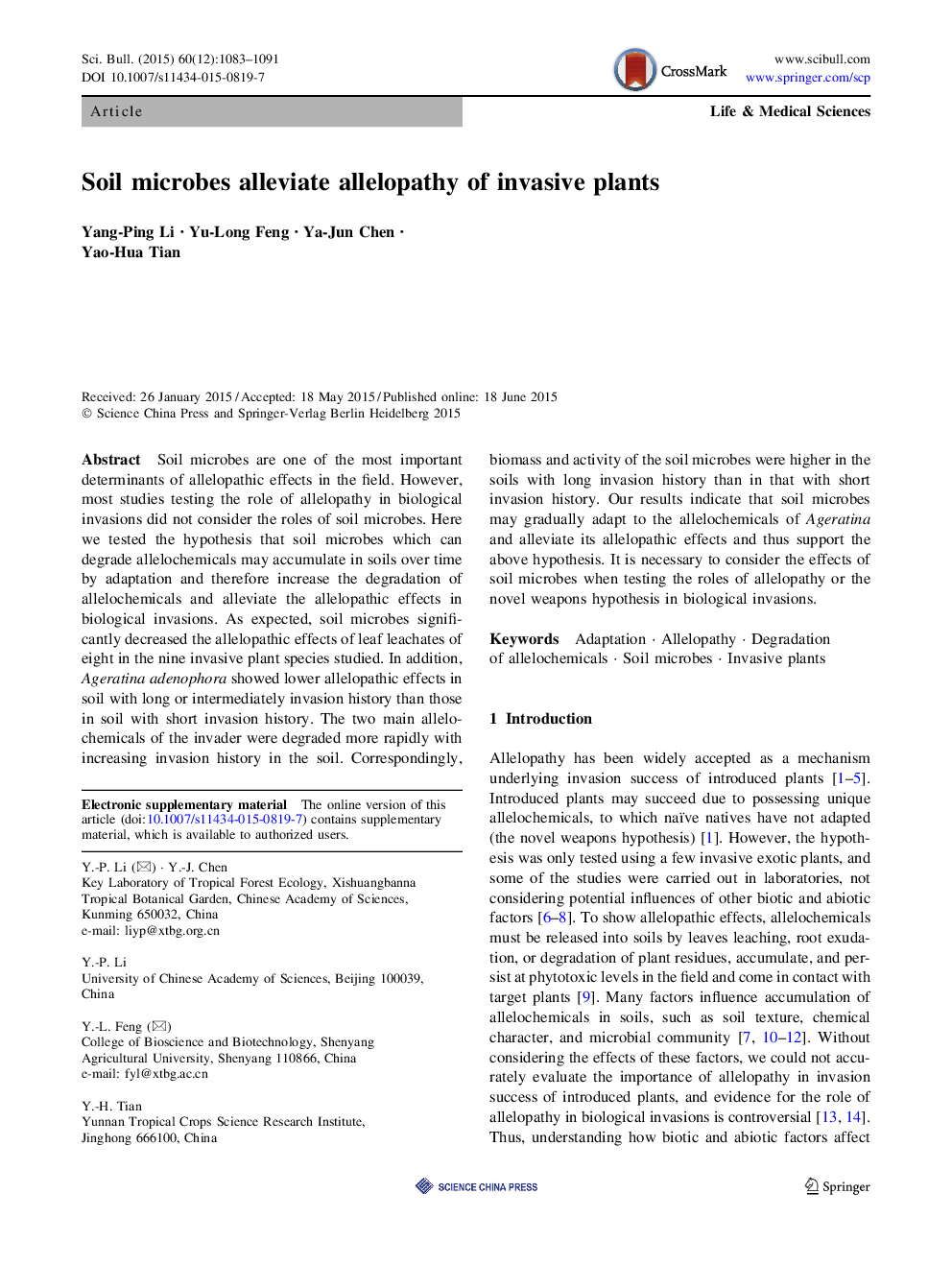| Article ID | Journal | Published Year | Pages | File Type |
|---|---|---|---|---|
| 5789278 | Science Bulletin | 2015 | 9 Pages |
Abstract
Soil microbes are one of the most important determinants of allelopathic effects in the field. However, most studies testing the role of allelopathy in biological invasions did not consider the roles of soil microbes. Here we tested the hypothesis that soil microbes which can degrade allelochemicals may accumulate in soils over time by adaptation and therefore increase the degradation of allelochemicals and alleviate the allelopathic effects in biological invasions. As expected, soil microbes significantly decreased the allelopathic effects of leaf leachates of eight in the nine invasive plant species studied. In addition, Ageratina adenophora showed lower allelopathic effects in soil with long or intermediately invasion history than those in soil with short invasion history. The two main allelochemicals of the invader were degraded more rapidly with increasing invasion history in the soil. Correspondingly, biomass and activity of the soil microbes were higher in the soils with long invasion history than in that with short invasion history. Our results indicate that soil microbes may gradually adapt to the allelochemicals of Ageratina and alleviate its allelopathic effects and thus support the above hypothesis. It is necessary to consider the effects of soil microbes when testing the roles of allelopathy or the novel weapons hypothesis in biological invasions.
Related Topics
Physical Sciences and Engineering
Chemistry
Chemistry (General)
Authors
Yang-Ping Li, Yu-Long Feng, Ya-Jun Chen, Yao-Hua Tian,
